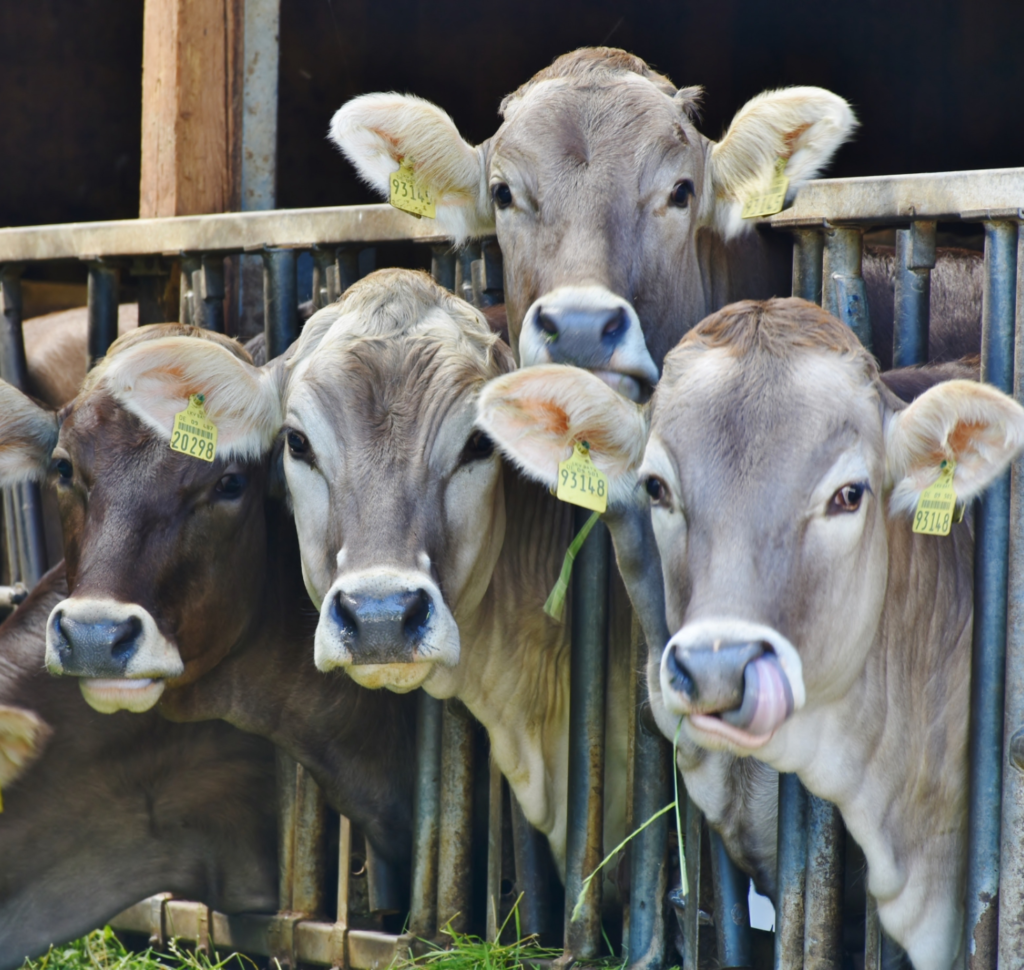
Livestock farming & Agriculture
According to the Food and Agriculture Organization (FAO) of the United Nations (UN), the animal agriculture sector is responsible for approximately 18%, or nearly one-fifth, of human-induced greenhouse gas (GHG) emissions. In nearly every step of meat, egg, and milk production, climate-changing gases are released into the atmosphere, in particular methane and nitrous oxide emissions, which are much more potent than CO2.
The land required not only to rear farm animals, but to also grow their feed has led to significant deforestation and habitat loss, threatening the survival of many animal species and plants. Biodiversity is essential for the health of our planet, yet around 60% of all mammals on earth are livestock, 36% are humans and just 4% are wild animals.
Factory farming pollutes environments, contaminating water supplies with a range of potentially lethal toxins. Farm run-off has also been linked to ocean ‘dead zones’ where excess nutrients enter the waterways and cause algae to bloom and eventually deplete oxygen levels as a result.
We can help to reduce the impact of the factory farming industry by cutting down our intake of meat and dairy and opting for more plant-based alternatives. Reducing food waste in general is also a great way to reduce you carbon footprint.


